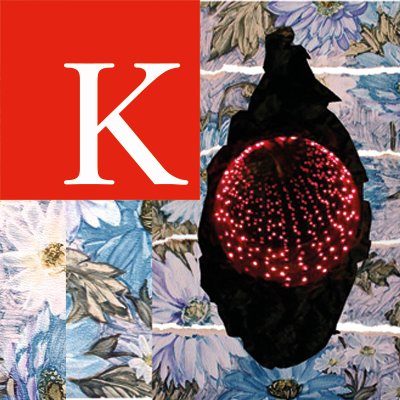In 2019 Dr Roberta Comunian and Dr Lauren England (Department of Culture, Media and Creative Industries, KCL) started working with Dr Eka Ikpe (African Leadership Centre, KCL) and Dr Ananya Kabir (Department of English, KCL). They were awarded a King’s Together Seed Fund grant for the “Africa Fashion Futures” project. The project looks at fashion in Africa – specifically through the work of fashion designers – to explore the connections and contractions between creative and cultural values and the potential for economic development of creative economies in Africa.
When photographer Bayo Omoboriowo joined KCL as an MA student in Arts & Cultural Management in the Department of Culture, Media and Creative industries, shared research interests and agendas around the importance of fashion and the textile traditions of Nigeria emerged. The significance of Bayo’s work in bringing to life some of the research themes investigated by KCL researchers is striking.
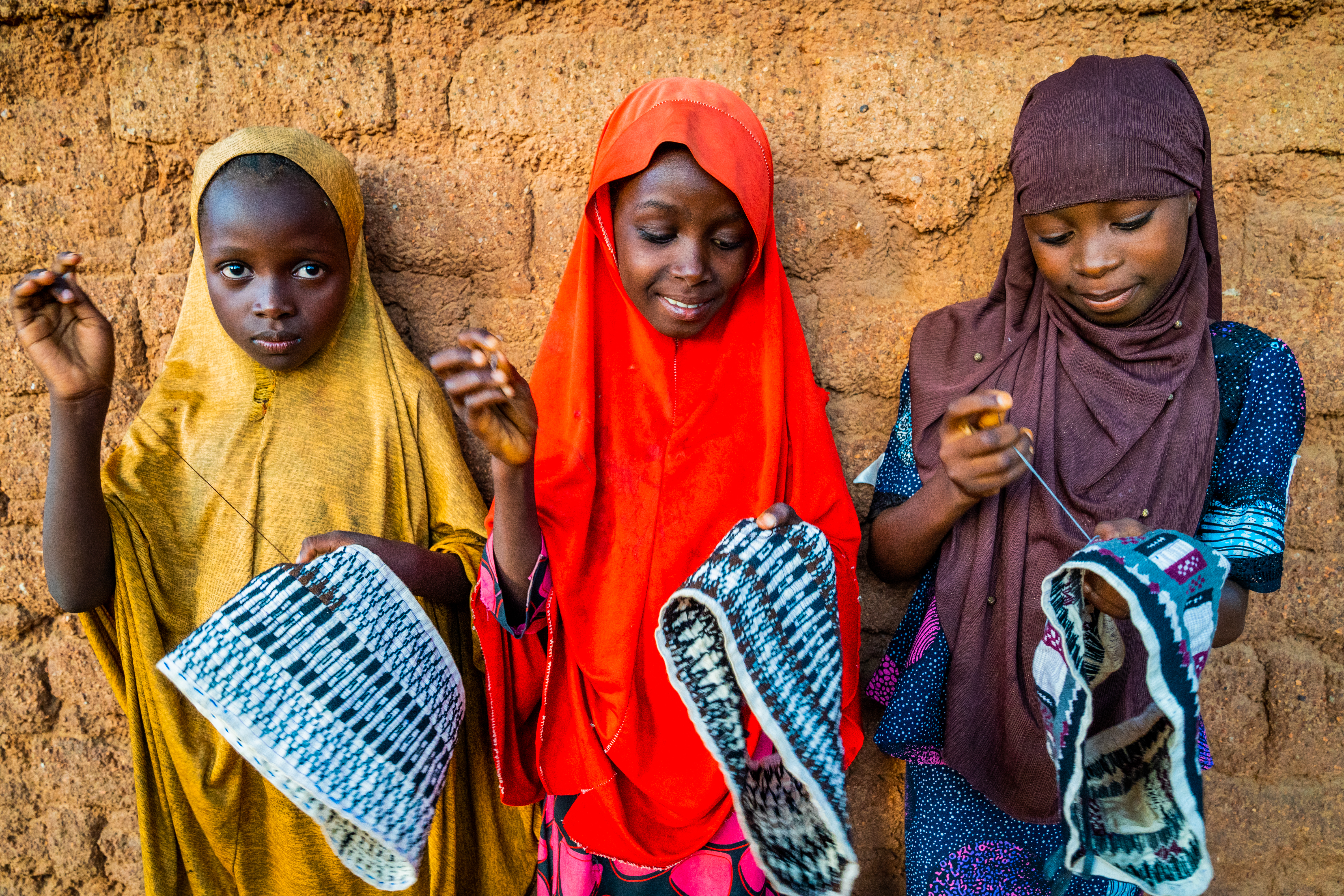
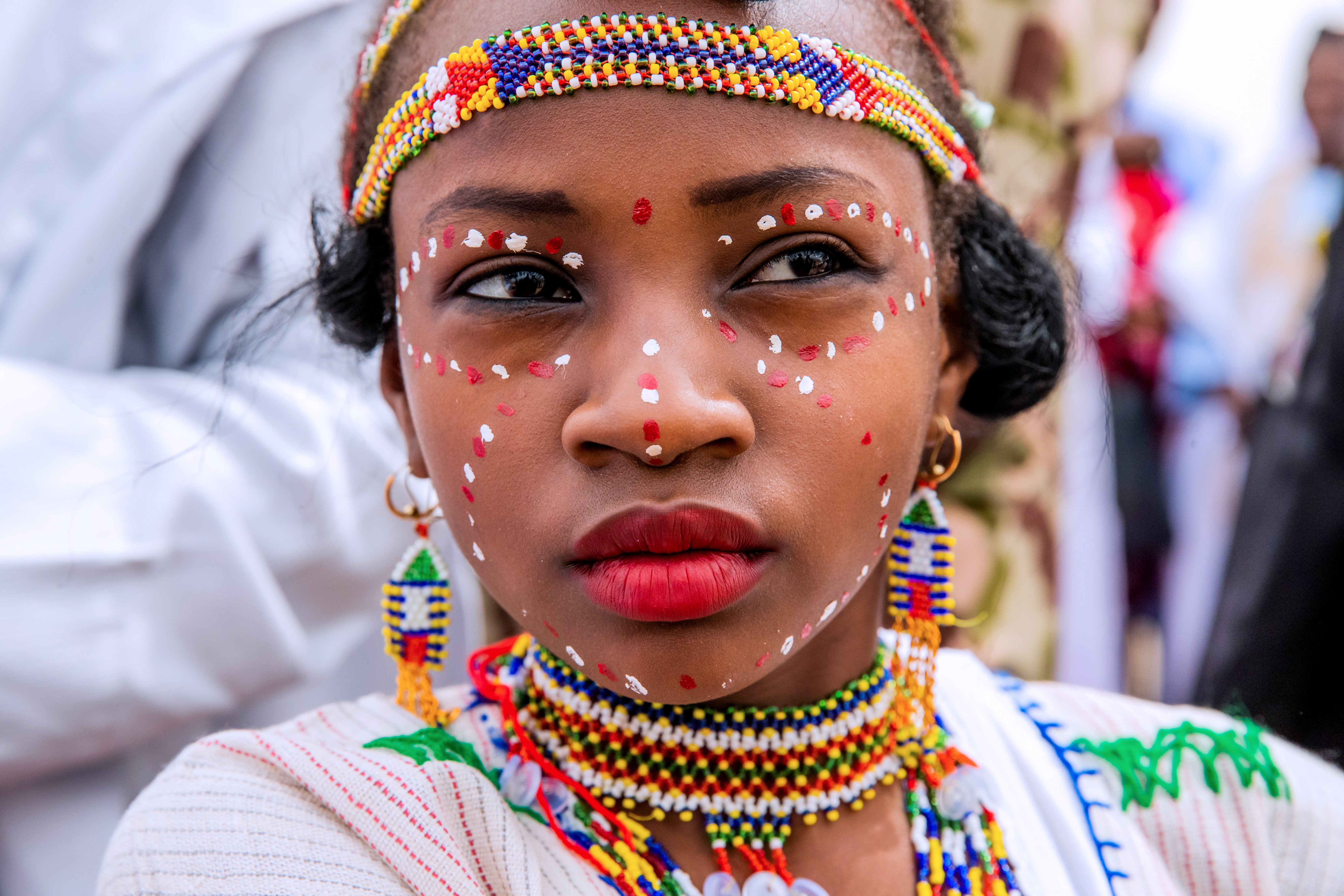

Photos courtesy of Bayo Omoboriowo
Fashion is not only a sector of the world economy, it is also a lens through which we can explore cultural expression, memory politics and making traditions as well as the broader economic and social impact of creative economies. This exhibition explores ancient and dynamic textile traditions of craftspeople and fashion designers from across Nigeria.
In this exhibition, we explore two significant themes that emerged from discussions with fashion designers based mainly in Lagos during the project and are also articulated through Bayo’s photographic works, which reflect fashion and textile practices from different areas of Nigeria.
In the accompanying texts, the photographic works are connected with the stories of Nigerian fashion designers and thematic reflections from the research team.
The first theme “Aso ebi: celebrating families and nations” illustrates how textile production and fashion traditions play an important part in Nigerian’s private and public life. From weddings and family celebrations to national festivals, ceremonies and rallies, the busy social calendar of Nigerian society create ample opportunity for individual and communal creative expression through fashion. Garments displaying sophisticated designs, vibrant colours, patterns and embellishment celebrate both traditional and contemporary Nigerian styles. As we explore in our research, Aso ebi creates a fashion ecosystem that provides economic opportunities for local fabric producers and vendors, designers, tailors and artisans who fashion fabrics into occasion wear for both men and women.
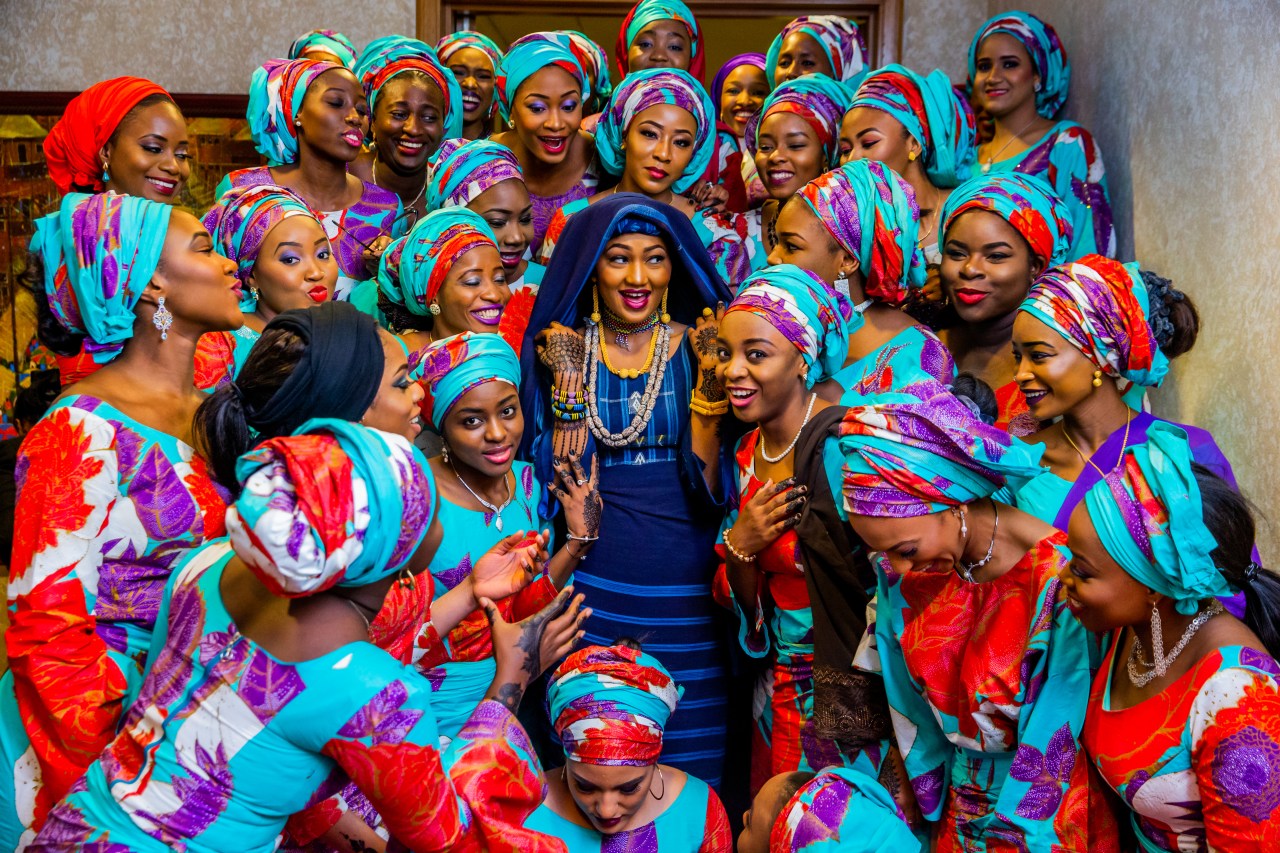



The second theme “Textile: markets, heritage and diversity” explores how textile production and crafts are the meeting points of a range of diverse activities and human endeavours. Some of them are anchored in the past, preserving specific traditions and local heritage; others are more connected with the present, to the markets and industrial production of our contemporary societies. Finally, some offer exciting potential for the future. In our research project, we investigated how African fashion can develop internationally and engage with global markets, not just as another country hosting mass-production facilities for global brands, but as a meaningful player presenting and preserving African stories, textiles, and traditions for new markets.

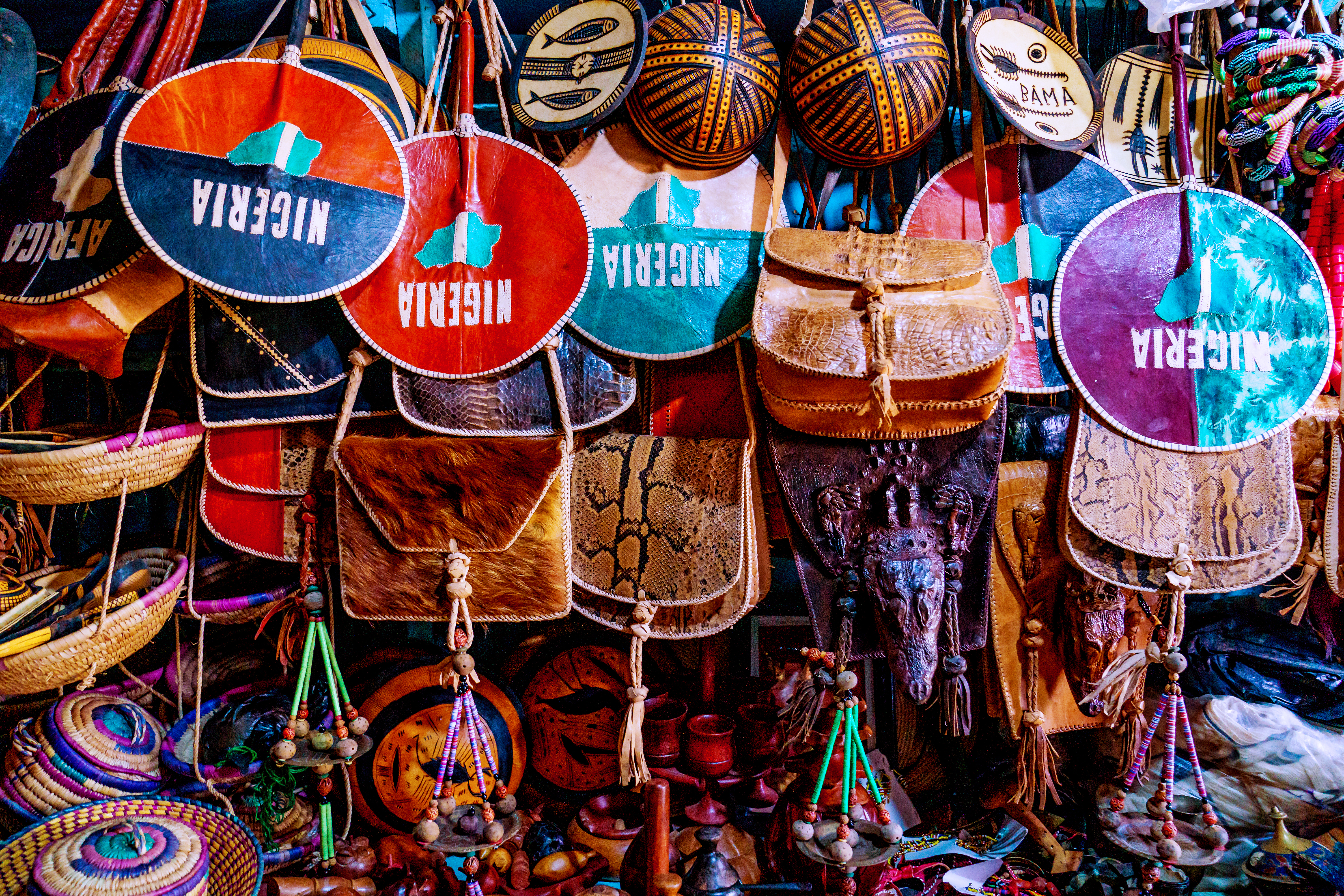
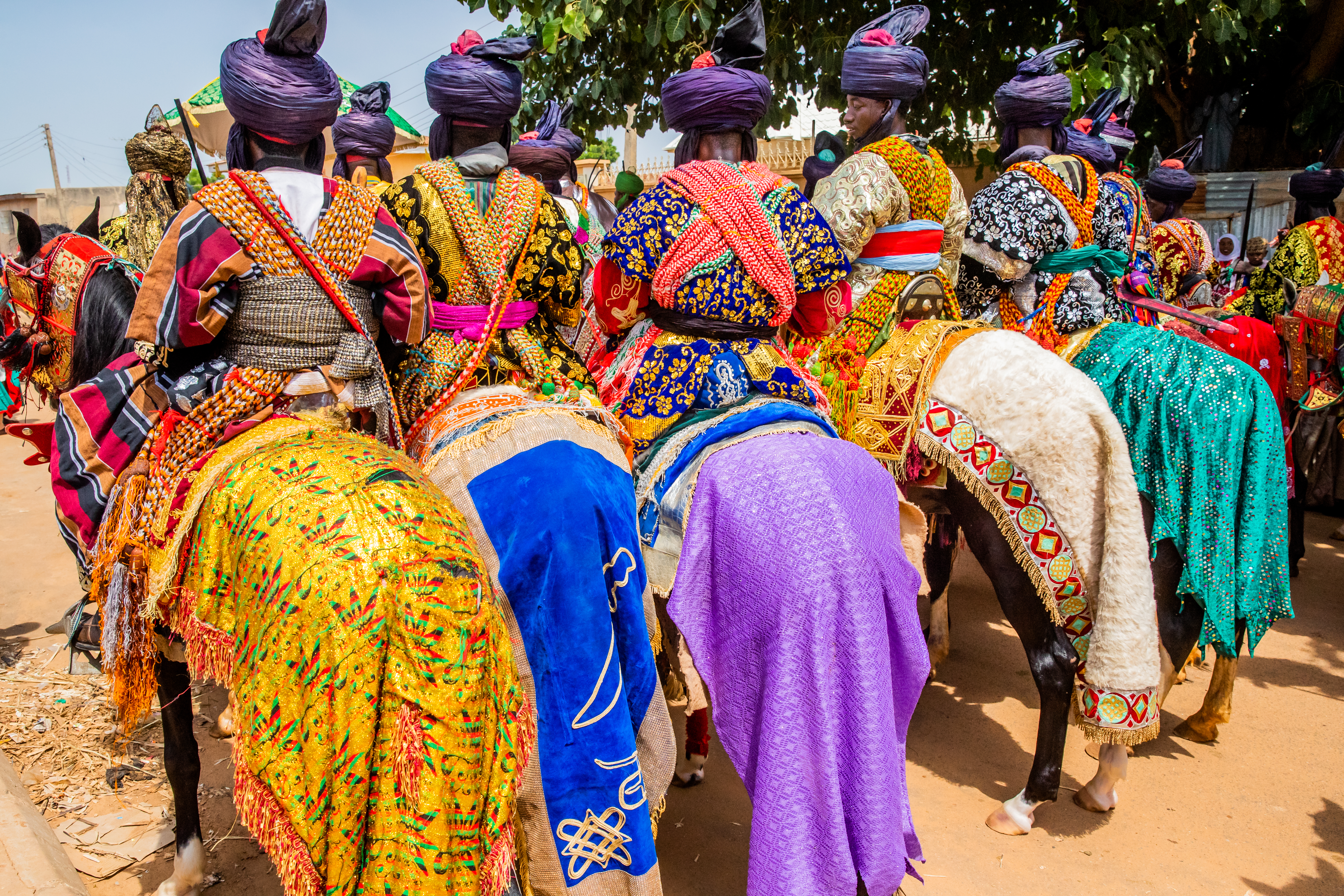
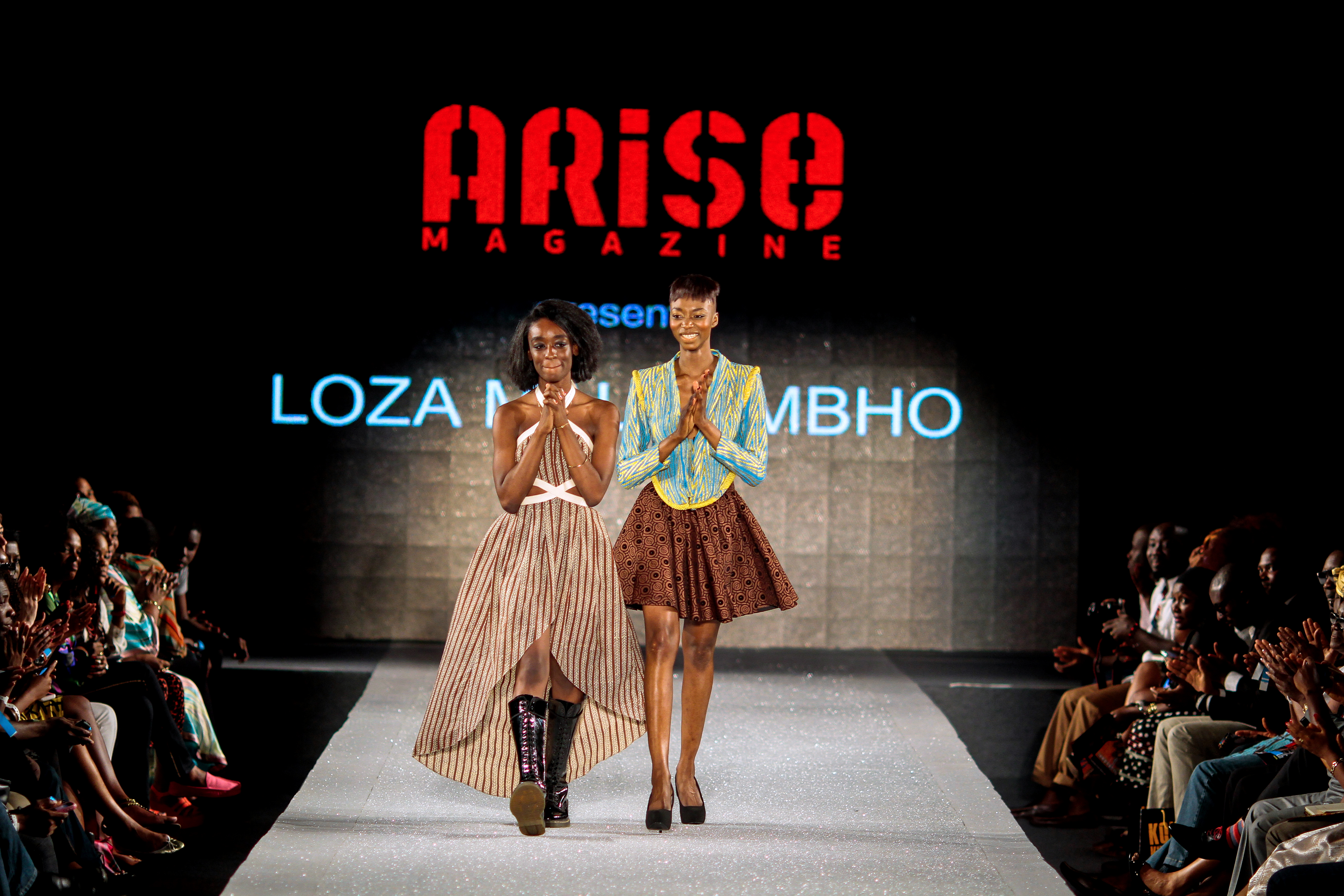
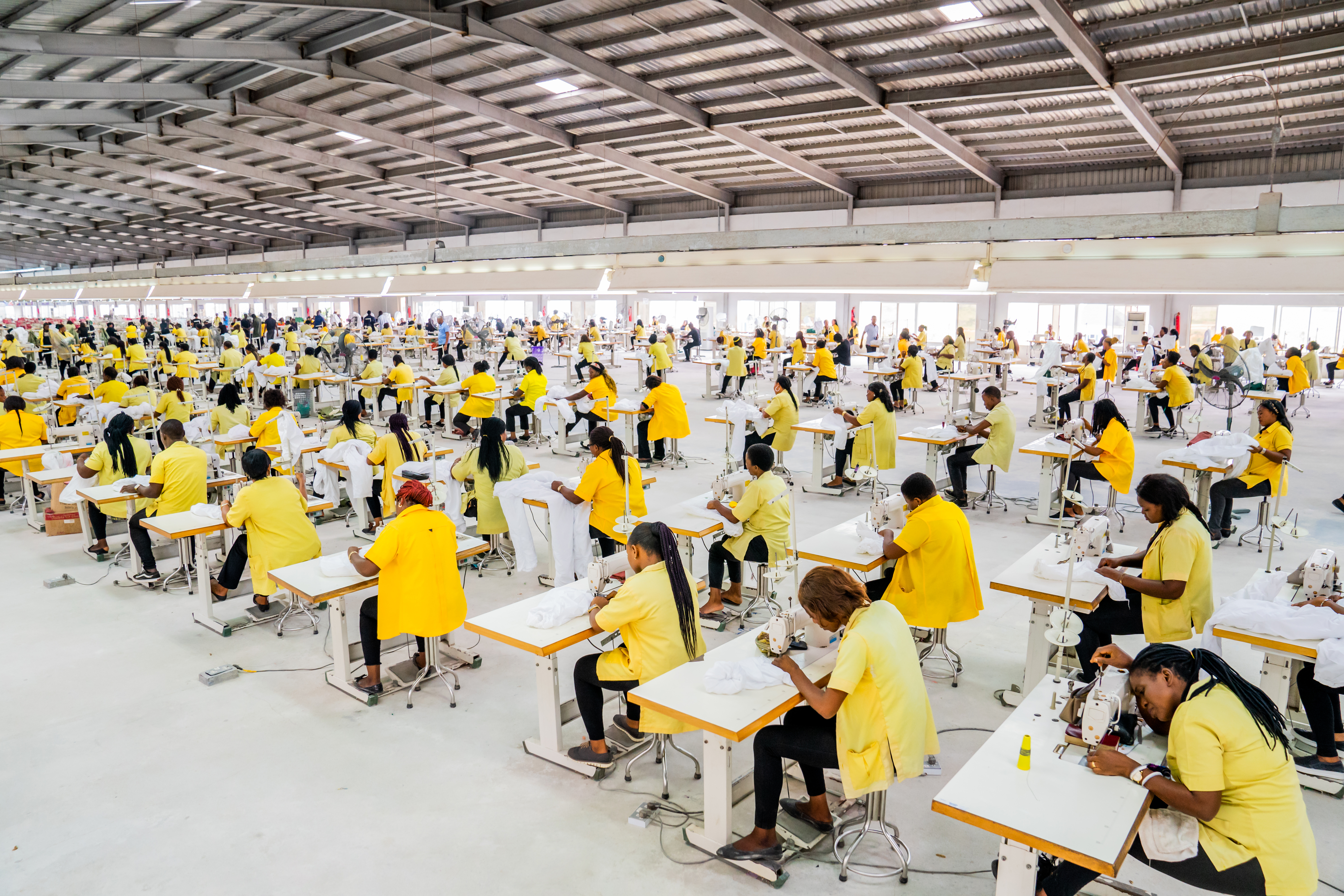

Photos courtesy of Bayo Omoboriowo
Through this collaborative exhibition and the associated research, we offer insights into the way fashion designers in Nigeria are intertwined with traditions, heritage and making practices, but also local and global markets. We believe critical reflection on how fashion will continue to evolve on the African continent – specifically reflecting on its cultural value and creative content – is important to ensure that cultural expression and making practices are celebrated and safeguarded against pressures to conform to global economic and production dynamics.
About the authors
Bayo Omoboriowo is an award-winning Nigerian photojournalist and documentary photographer. He is currently the Chief Official Photographer to the Nigerian President, a position he has held since May 2015. In 2012, Omoboriowo led the team that won the MTN Afrinolly film competition, Nigeria, and the Sundance Institute Film Award, USA. The same year, he won the NACCP Climate Change Photo Contest and The Future Awards for the Most Creative Artist of the Year in Nigeria. Omoboriowo is the author of several books, including Discover Nigeria, an extensive photo and text documentary on Nigeria’s people, places, and culture. In 2021, Discover Nigeria set a Guinness World Record for the largest photobook. Omoboriowo’s photographs have been featured in art exhibitions and published in national and international journalism platforms. Passionate about education and creative empowerment, he is the founder of Unabashed Africa, a platform that upskills and creates opportunities for photographers across Africa. He is currently an MA student in Arts and Cultural Management at the Department of Culture, Media and Creative Industries at King’s College London.
Roberta Comunian is Reader in Creative Economy at the Department for Culture, Media and Creative Industries at King’s College London (UK). She is interested in cultural and creative work and creative higher education. She has published extensively on the role of creative and cultural industries in local development. She has coordinated two Arts and Humanities Research Council international research networks and is currently involved in the H2020 EU funded project DISCE: Developing inclusive and sustainable creative economies.
Lauren England is a Lecturer in Creative Economies in the Department for Culture, Media and Creative Industries at King’s College London. She is interested in creative enterprise and education with a focus on craft and sustainable development in both global North and global South contexts. She has published research on creative economy development in Africa, the evolution of craft skills and craft/design entrepreneurship and higher education. She is currently researching the impact of Covid-19 on creative economies.
Eka Ikpe is a Reader in Development Economics in Africa and Director at the African Leadership Centre, King’s College London. She researches and has published on socio-economic transformation processes and outcomes across themes including industrial development and structural transformation, peacebuilding and post-conflict reconstruction in parts of Africa and Asia. Her research has been funded by the EPSRC-GCRF, ESRC, Carnegie Corporation of New York and the International Development Research Centre. She is currently an investigator on a Carnegie Corporation Grant on Future Peace Society and the State in Africa.
Ananya Jahanara Kabir is a Professor of English Literature at King’s College London. She researches the intersection of the written text with other forms of cultural expression within acts of collective memorialisation and forgetting. For her innovative work in the Humanities, she received the Infosys Humanities Prize (2018), awarded by the Infosys Science Foundation, India, and the Humboldt Forschungspreis (Humboldt Prize, 2018), awarded by the Alexander von Humboldt Stiftung, Germany.
Acknowledgements
We would like to thank MA in Arts & Cultural Management student and photographer Bayo Omoboriowo for contributing to this exhibition and giving us access to his photos.
We acknowledge funding awarded to Dr Comunian, Dr England, Dr Ikpe and Dr Kabir through King’s Together Seed Funds that allowed the research behind the exhibition to be undertaken in 2019-2020 (www.africa-fashion-futures.org.uk)
We are grateful to the Department of Culture, Media and Creative industries for supporting the printing of the exhibition photos and support materials and to Culture at King’s for facilitating the use of the Arcade Space to host this exhibition. Colleagues, projects partners and collaborators across Africa via the Africa Hub for Sustainable Creative Economies (www.creative-economies-africa.org) have also provided input and encouragement.
We acknowledge the contribution of MA student Kwan Yiu Ho (Department of Culture, Media and Creative industries) for the design of the exhibition information and support materials.
